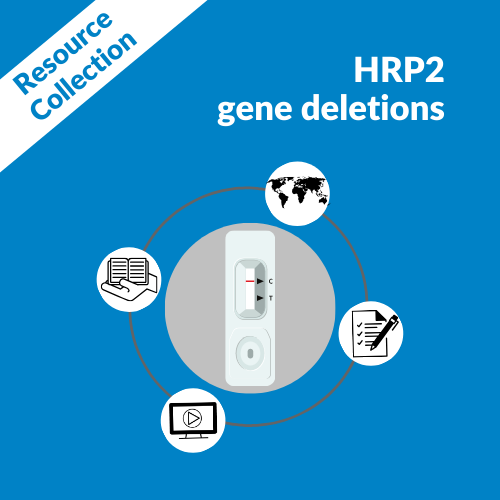COLLECTION
Responding to the threat of pfhrp2/3 deletions
WHO guidance, protocols and tracking
WHO mapping tool to track 4 major biological threats, including pfhrp2/3 gene deletions
WHO questionnaire to track planned and ongoing surveillance of pfhrp2/3 deletions
Procedure for WHO complaints
Any problems experienced by countries concerning RDT performance can be formally communicated to WHO:
- Reporting safety, quality, performance issues for medical devices including in vitro diagnostics (generic procedure for complaints related to in vitro diagnostics)
- Complaints Handling by WHO (concerning a prequalified in vitro diagnostic)
Prevalence of Plasmodium falciparum lacking histidine-rich proteins 2 and 3: a systematic review – [Bull. WHO; 2020]
WHO technical support
* WHO can provide assistance in the molecular analyses through its reference laboratory network.
Contact: malaria_rdt@who.int
